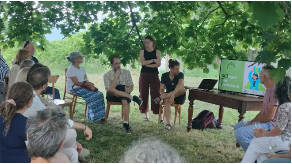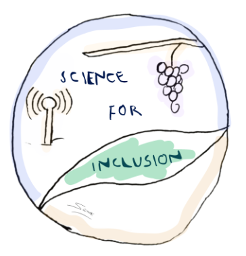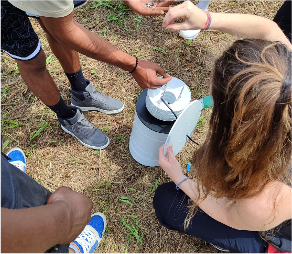Project Description:
The SCI-FI (SCIence For Inclusion) project aims to foster environmental preservation and social inclusion by integrating sustainable agricultural practices with community engagement. Conducted in the Friuli Venezia Giulia region of Italy, the project trains vulnerable citizens and farmers as citizen scientists to collect field data, refine agronomic models and promote precision agriculture. Key activities include installing weather stations, conducting workshops on climate resilience and sustainable farming, and developing a digital platform for data dissemination.
By engaging rural communities in technology development and application, the project seeks to reduce distrust towards European initiatives and elucidate the scientific reasons behind sustainable agricultural technologies. This blend of science, technology, and society applied to the agrifood sector aligns with the Agenda 2030 goals, emphasising the importance of citizen science. The ultimate goal is to enhance digital transformation in agriculture while improving participants’ social and psychological well-being, fostering a more inclusive and sustainable community.
Project Type: Kickstarting Grant
Theme: Justice and Equity, Climate
Mentor:Fermín Serrano
Science for Inclusion: Science Serving Agriculture and People
The Science for Inclusion (SCI-FI) project, developed by Primo Principio in collaboration with Duemilauno Agenzia Sociale, aims to build a sustainable community that fosters social inclusion through citizen science. In Friuli Venezia Giulia, a traditionally agricultural region in northeastern Italy, SCI-FI integrates science and technology into agriculture to address both environmental and social challenges.
The project actively engages citizens through various initiatives—one of the initial steps involved installing weather sensors in a vineyard at Azienda Agricola Maggiori in Colloredo. Young people with disabilities, unaccompanied minors, and individuals from mental health services collaborated with farmers and experts to collect essential environmental data for vineyard management. Participants gained technical skills and boosted their self-esteem through these activities by contributing to a meaningful project.
SCI-FI also organized training sessions on using a digital platform for data management. These workshops adopted an inclusive, participatory style, following a maieutic approach prioritising participants’ needs and concerns. Each session began by discussing participants’ apprehensions and knowledge gaps in science and technology. By addressing these concerns openly, participants felt more comfortable engaging with new tools. They learned to record, analyse, and interpret data from the sensors, enhancing their digital skills and understanding of how technology supports sustainable farming practices.



Participants discovered that data are not just numbers but narratives describing complex phenomena that require interpretation. Inspired by the Dear Data project, they experimented with creative ways to represent data, turning it into a storytelling tool. This approach demonstrated that science and technology are accessible to everyone, including those typically excluded, by focusing on individual learning needs and providing tailored support.
SCI-FI addresses key social and environmental issues: reducing fertilizers and pesticides in agriculture and promoting the social inclusion of vulnerable individuals. Citizen science empowers participants to become active contributors to change. Data collected in the fields help refine agricultural models, enabling more efficient use of natural resources such as water and fertilizers.
The project also significantly impacts the community by fostering connections between local farmers, vulnerable young people, and university researchers. These connections, facilitated through events in Colloredo and communication platforms like the project website and WhatsApp channel, promote a collaborative approach to problem-solving, delivering both social and scientific benefits.
SCI-FI has been supported by the IMPETUS program, which provided funding, mentoring, and training. This support enhanced the team’s skills in scientific communication, data management, and stakeholder collaboration. Moving forward, SCI-FI will continue expanding its community of citizen scientists, engaging more people in collecting and analyzing agricultural data. Future steps include organizing additional training activities and involving more farms across Friuli Venezia Giulia.

The collected data will contribute to predictive models for sustainable agriculture while promoting social inclusion and empowering vulnerable participants. SCI-FI demonstrates that science is not just for experts—everyone can participate and contribute, gaining valuable skills and increasing their awareness of environmental and social issues. Through citizen science, knowledge becomes a shared tool for tackling global challenges, starting within local communities.



